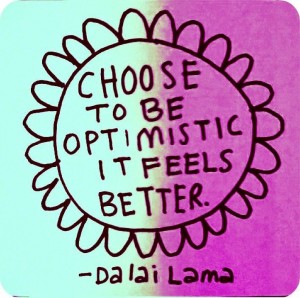by Cynthia Bischoff | Jan 15, 2017 | Heartliving
 When we are overwhelmed, it is difficult in that moment not to get caught in the minutia of life. Whatever is going on seems to BECOME our life–the whole of it. Our emotional response can be out of proportion to the events that are occurring.
When we are overwhelmed, it is difficult in that moment not to get caught in the minutia of life. Whatever is going on seems to BECOME our life–the whole of it. Our emotional response can be out of proportion to the events that are occurring.
It is important to be able to step back at any given time and take a “sacred view” of what is going on.
You can ask yourself:
- From a larger perspective, how does this problem or issue factor in to my whole life?
- Are my feelings and response to this situation appropriate given the meaning of the situation in regard to my life?
- How can I be “in this world but not of it”–in other words, participate in it but not be caught in the drama?
- Will I remember this on my deathbed?
When you are caught in a dramatic or fearful moment, take a breath, and remember to hold “a sacred view”! It will make those difficult times far easier.
by Cynthia Bischoff | Jan 8, 2017 | Heartliving
 Are you frequently engaged in a quest for your car keys? Do you fight with your closet to find what to wear? Is stress your daily companion?
Are you frequently engaged in a quest for your car keys? Do you fight with your closet to find what to wear? Is stress your daily companion?
An organized life will allow you to have less chaos, more time, and even better mental health!
Why do we become disorganized? First, the creation of physical chaos is a result that originates with your very thoughts. When you are distracted or overly committed, you are less likely to create or have order. You can clear your mind first or clear your clutter. If you are in doubt, start with clearing your closet! It’s amazing what that simple act can do to calm your mind and your life. And that’s just the beginning. . . .
While you may be attached to your clothes (even those you haven’t worn or those that don’t fit any longer), please know that weight and stuff are simply barriers against a world we think is threatening. When you shed the excess you reconnect with your life.
Here are some simple steps to get started:
Step 1: Choose one clothes closet and take everything out of it. If the closet is a walk-in or large, you can do this in stages.
Step 2: Decide the best and most efficient way to hang or store items (this may require some shelves or added pole).
Step 3: When you are set, add each item back one at a time after you have decided that you will KEEP it. In other words, if it doesn’t fit, isn’t the right color, you have two of them, etc., you need to let it go! There are wonderful charities longing for that piece.
Step 4: Decide on ONE type of hanger. Avoid thin wire hangers that are harder to line up or that get tangled with each other. Choose the same plastic style, preferably a thinner type to maximize space.
Step 5: Hang all blouses, all pants, all dresses, all suits—in the same section. This will help you figure out what you really do have, make it easier to find a particular item, and help you maintain order.
Step 6: Make sure that all items are placed facing the same direction. It’s easier to see the front of an item.
Step 7: Hang all colors together in sections if you prefer that method. It’s easier to color coordinate what you are wearing.
Step 8: Shoes and purses can be lined up in order on shelves by color.
Finally, if the closet is large enough or there is any wall space at all that is visible, hang a small framed reminder, like “I am beautiful!” (you and the closet).
by Cynthia Bischoff | Dec 25, 2016 | Heartliving
 The first principle of mental fitness is to value yourself. This does not depend upon your achievements, but rather to extend to yourself “unconditional positive regard.” You’re not being asked to be perfect or never to have done anything wrong. You simply allow yourself to feel good about yourself.
The first principle of mental fitness is to value yourself. This does not depend upon your achievements, but rather to extend to yourself “unconditional positive regard.” You’re not being asked to be perfect or never to have done anything wrong. You simply allow yourself to feel good about yourself.
What robs you of your joy?
- You may fall into a trap of serving other people’s needs at the expense of your own.
- You waste time on problems or issues that cannot be solved.
- You get into “moods” in which you focus on what you do NOT have or how difficult changing your life would be.
- You worry about “what if’s.”
- You allow other people to affect you negatively in part because you may seek their approval.
So how do you bring more joy into your life?
Joyful people report that they use strategies that enable them to navigate life with a positive attitude. Through experience, they have come to the realization that opportunities as well as emotions cycle through ups and downs. During hard times this awareness gives them the faith that “this too shall pass.” Because they recognize the preciousness of the good times, rarely do they lament about the past. Instead, they focus on moving through life with a sense of wonder and joy.
by Cynthia Bischoff | Dec 18, 2016 | Heartliving
 Holiday Season is here and with families gathering over the holidays, even the most “healthy” families can have difficulty trying to balance getting along with each other and not feeling stressed by expectations.
Holiday Season is here and with families gathering over the holidays, even the most “healthy” families can have difficulty trying to balance getting along with each other and not feeling stressed by expectations.
A few suggestions may go a long way in helping you create a happy holiday:
- Don’t strive to be perfect or have a “perfect” holiday. While you can plan and prepare that special dinner and event, allow things to flow and don’t worry so much about controlling outcomes. Not everyone is going to live up to your expectations (probably not even yourself), so let go of those expectations for perfection. Remember “all is well” in the greater scheme of life.
- Reach out to others. If you feel lonely or isolated, seek out people and events that can support you. Or volunteer to help someone else or an organization. This can be a good way to lift your own spirit while you are helpful to another.
- Practice healthy boundaries. Be sure you are saying “yes” to what you really want to do. Many requests can come during a holiday, so be selective and don’t overload yourself and your schedule. Commit to what you know makes sense and keep those commitments.
Manage your time. Keep a notepad in a designated place to schedule errands, items needed, etc. This will be the “go to place” for new thoughts and ideas that come up.
- Don’t abandon healthy habits. Be sure you are taking good care of yourself, whether it’s continuing to exercise, meditate for 10 minutes a day, or whatever helps you stay grounded. Even though many more delectable delights are available, you can still eat in moderation or make a different choice one day over another. Let go of guilt and know that you may eat a little more home-made sweets if that is your tradition. You will get back on track through intention.
Allow yourself to trust your feelings. If something has occurred (loss of a loved one, divorce, illness) that has made you sad, it is normal to feel and to express your feelings. You can’t make yourself happy just because it’s the”season to be jolly.”
- Be love. I like to think of the holidays as a special time to be kind and loving to all people you meet on your path, whether it’s the person at the grocery store in front of you in the long line, or the one who takes the last item you really wanted in the bin at the department store. Know that “things” are just things and that how you are being is what counts in the greater scheme of life.
Happy Holidays!
by Cynthia Bischoff | Nov 27, 2016 | Heartliving
 We are all unlimited beings, and only individual beliefs truly hold us back. Therefore, it is important to understand the fundamentals of thought to gain new insights into creating the life you want.
We are all unlimited beings, and only individual beliefs truly hold us back. Therefore, it is important to understand the fundamentals of thought to gain new insights into creating the life you want.
Thoughts and beliefs exist as tiny waves of energy called a “thoughtform,” a minute wave of energy that carries a vibrational frequency. Think of yourself as having an energetic signature that is derived from your beliefs. This signature attracts experiences into your life and can limit some beneficial experiences because of its vibration. So by changing your beliefs (and your vibrational frequency), it is possible to attract new, more desirable experiences into your life!
Which thoughtforms most rob you of manifesting your desires? –Fear, doubt, judgment, and worry are among the strongest!
Here are some tips for positive change:
1. Adopt the attitude that everything is happening for a good reason, so you can turn the negative vibration related to the experience you’ve had into a higher vibration.
2. Decide that you can learn something from every experience and that you are ready to let go of painful ones. Decide what you’ve “learned,” and move on.
3. Change your list of judgments you hold about yourself. If you are not your own advocate, who will be?
4. Monitor your self-talk and get rid of that inner critic by pausing and being mindful of how you view and treat yourself.
5. Practice positive affirmations and thoughts, such as “I love myself”; “I am worthy”; “Wonderful experiences come to me”!
6. Replace old negative behaviors with positive ones. Of course, positive thoughts lead to positive actions, so think positively and hold a structure for yourself to redirect the energy and vibration.
7. Remember that “like attracts like” and pay attention to where you are investing yourself and your spirit.
Know that what you REALLY expect, you receive, so expect good things to come to you!
by Cynthia Bischoff | Nov 20, 2016 | Heartliving
 Hunger exists in many forms. There is the hunger for food, but also the hunger for love, for purpose, for truth . . . and the hunger for a life that reflects that truth.
Hunger exists in many forms. There is the hunger for food, but also the hunger for love, for purpose, for truth . . . and the hunger for a life that reflects that truth.
When an individual consistently or compulsively overeats, it may be unconsciously aimed at satisfying a hunger for something other than just food. It is important to recognize that the primary driving forces underlying overeating are often our deeply hidden wishes and fears. Understanding this is the first step toward feeding the true hunger.
Next, it is essential to become aware of any medical problems that might contribute to the overweight condition. Once that is addressed, if you are consistently unable to lose weight or keep it off and find yourself overeating, while you may be aware only of your wish to be thin, you must recognize that another wish does exist, whether it is conscious or unconscious. Your wish to be thin must override all your other wishes for it to be fulfilled.
It is often astonishing to become aware of our internal wishes that have been operating without our awareness. Some people unconsciously overeat as a way of symbolically recovering the feeling of being cared for. Eating has little to do with real hunger, but rather relates to a hunger for love. Eating is accompanied by the safe feeling of being nurtured and fed.
Some people use food to comfort themselves and have learned that when they cannot have another object (a person or thing), that they can have food to soothe themselves. In their families of origin, was food a substitute for love or nurturing or was it closely connected to nurturing or positive feelings?
If you are aware that your eating symbolically represents supplying love or nurturing to yourself, then it is critical that you also realize that overeating is not actually going to fulfill those needs.
Know that you can get these nurturing feelings in other ways, such as indulging in a good book, a friend’s company, a massage, a creative hobby, or a supportive group event as wonderful heart food that may be more sustaining. The important thing is to understand what’s driving the true hunger.
 When we are overwhelmed, it is difficult in that moment not to get caught in the minutia of life. Whatever is going on seems to BECOME our life–the whole of it. Our emotional response can be out of proportion to the events that are occurring.
When we are overwhelmed, it is difficult in that moment not to get caught in the minutia of life. Whatever is going on seems to BECOME our life–the whole of it. Our emotional response can be out of proportion to the events that are occurring.
 Are you frequently engaged in a quest for your car keys? Do you fight with your closet to find what to wear? Is stress your daily companion?
Are you frequently engaged in a quest for your car keys? Do you fight with your closet to find what to wear? Is stress your daily companion? The first principle of mental fitness is to value yourself. This does not depend upon your achievements, but rather to extend to yourself “unconditional positive regard.” You’re not being asked to be perfect or never to have done anything wrong. You simply allow yourself to feel good about yourself.
The first principle of mental fitness is to value yourself. This does not depend upon your achievements, but rather to extend to yourself “unconditional positive regard.” You’re not being asked to be perfect or never to have done anything wrong. You simply allow yourself to feel good about yourself. Holiday Season is here and with families gathering over the holidays, even the most “healthy” families can have difficulty trying to balance getting along with each other and not feeling stressed by expectations.
Holiday Season is here and with families gathering over the holidays, even the most “healthy” families can have difficulty trying to balance getting along with each other and not feeling stressed by expectations. We are all unlimited beings, and only individual beliefs truly hold us back. Therefore, it is important to understand the fundamentals of thought to gain new insights into creating the life you want.
We are all unlimited beings, and only individual beliefs truly hold us back. Therefore, it is important to understand the fundamentals of thought to gain new insights into creating the life you want. Hunger exists in many forms. There is the hunger for food, but also the hunger for love, for purpose, for truth . . . and the hunger for a life that reflects that truth.
Hunger exists in many forms. There is the hunger for food, but also the hunger for love, for purpose, for truth . . . and the hunger for a life that reflects that truth.